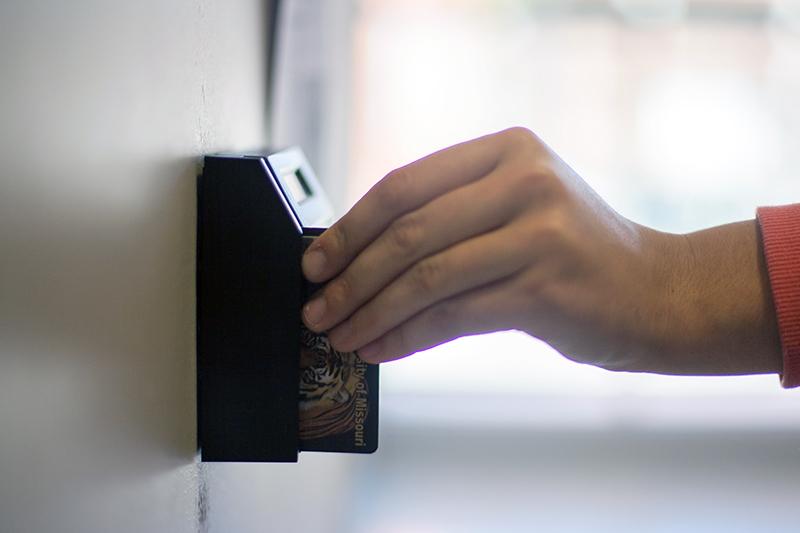Residential Life and the Residence Halls Association are teaming up to address safety concerns on campus.
Both entities have been considering implementing a new plan in all residence halls that would require students to swipe their MU IDs to access the student residential area in all residence halls during all hours of the day.
Some residence halls currently have this system because they have a second interior door that, once swiped in, provides access to the living area of the residence halls.
Other halls were not renovated recently enough for the security measures to have been put into place. The halls that do not have the 24/7 lock system include North, Center, South, Jones, Laws, Defoe-Graham, Wolpers, Excellence and McDavid halls. In these halls, once an individual is inside of a residence hall, an additional swipe is not required to access the living area.
Kristen Temple, associate director for Residential Academic Programs, said Residential Life is planning on adding the second interior door to these residence halls once they are renovated. Until then, the new policy would lock the exterior doors 24/7.
Incidents have occurred in the past in residence halls that do not have the 24/7 swiping system in which individuals entered student living areas and committed acts of theft, soliciting and vandalism.
Neither RHA nor Residential Life have made an official decision on whether they will support the decision to extend the system to all residence halls and both associations are discussing it within their committees and staff meetings.
Temple said that although some of Residential Life’s faculty are in favor of the new policy, they are still collecting feedback from some of the staff. She said some might feel different because there are challenges and inconveniences accompanying the new policy.
Temple said there have been challenges with the double-swipe system, including mail delivery, package delivery, pizza delivery and guest visit issues. Despite these inconvenience, Temple feels that it is in students’ best interest.
“It’s one of those things where we need to say to students, ‘We want to protect you, and this is why we’re going to do this,’” Temple said.
RHA has been discussing the issue within the Residential Living Committee.
RHA President Jackson Farley said he feels that members have been generally receptive of the new policy.
“They’ve been kind of mulling it over and discussing how it affects them,” he said. “I think they agree that it would be in the best interest to do the safer option. Some of them are worried that it would be an inconvenience, but I think a lot of them see the advantages.”
Farley said that he feels that the new policy minimizes the likelihood of such incidents and serves as a strong preventative measure for more serious transgressions.
“I think in any serious situation where people are entering the rooms or in any way infringing on student safety it becomes an issue,” Farley said. “I think it’s not something we should take a lot of time and worry about over the next year and push away, but I think it’s something we need to work towards getting implemented right away.”
The new policy would also keep a computer-supported swipe record of anyone who enters the building which would make it easier to determine who committed a crime or help lead to more information and witness accounts, Temple said.
Residential Life will determine whether or not the new security policies will be implemented in all residence halls, but Temple said they are taking all opinions into consideration and wants to put what is in student’s best interests first.
“The students are our lifeblood, and that’s why we exist,” Temple said. “We really like to have student input into really anything we do that impacts their lives and their experiences in the residence hall.”
A final meeting including Residential Life employees and RHA members will take place to decide on whether residence halls will be locked 24/7.
Freshman Patrick Barclay said he feels the new policy is in the students’ best interest despite inconveniences.
“I think it’s a good idea because people can be less paranoid about somebody just walking in,” Barclay said. “I think the benefits of safety far outweigh the inconveniences of having to swipe in.”








